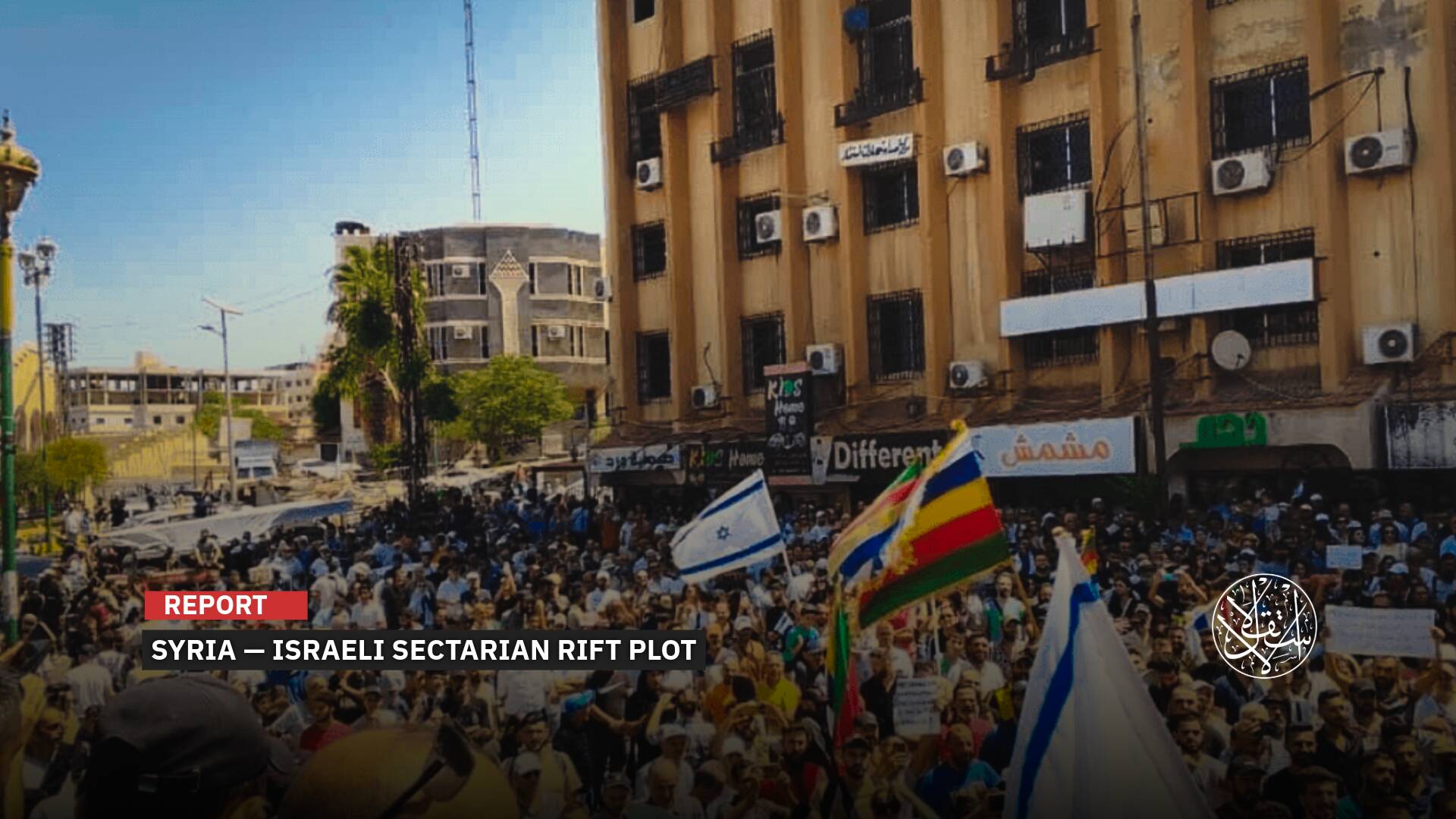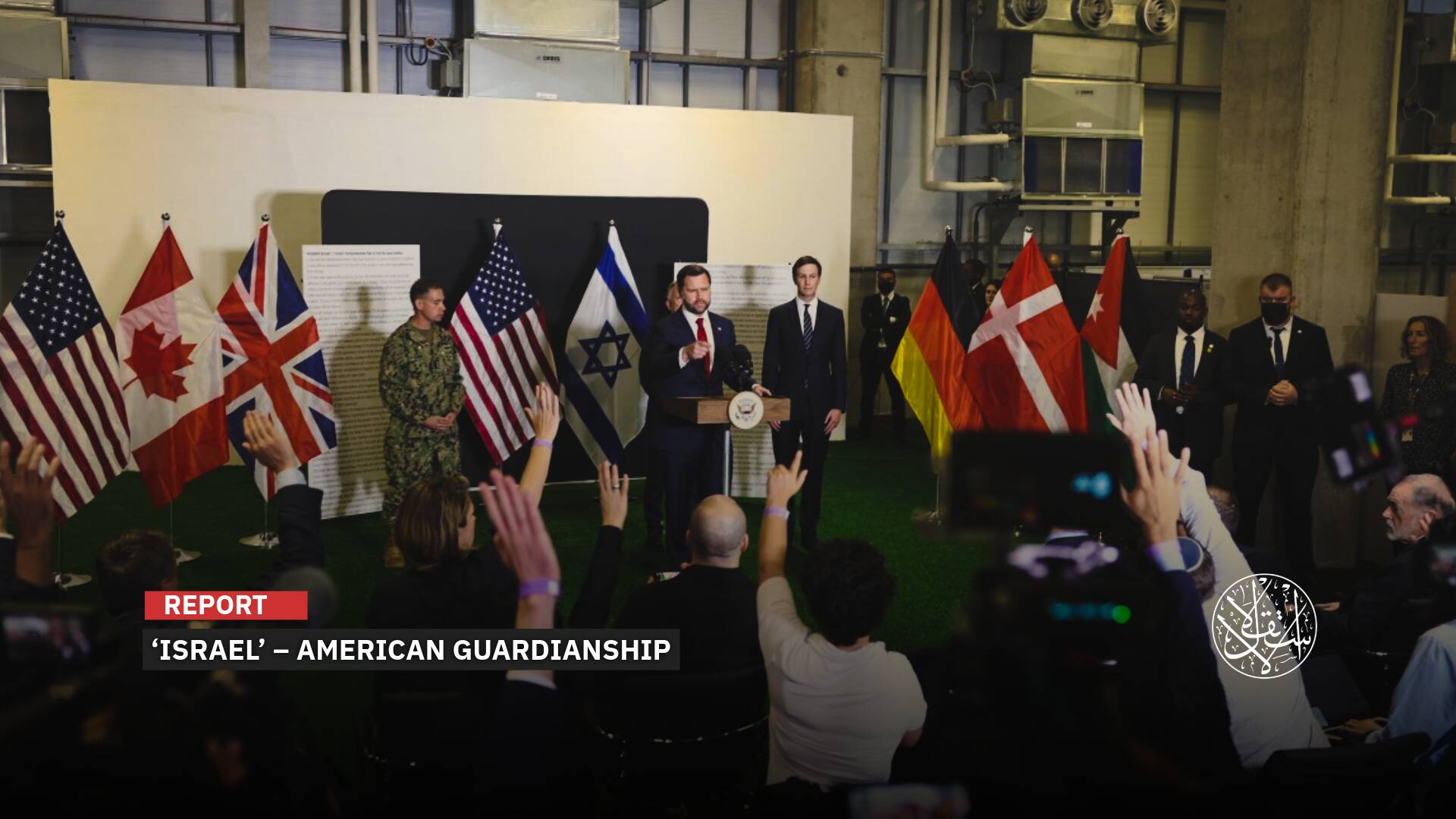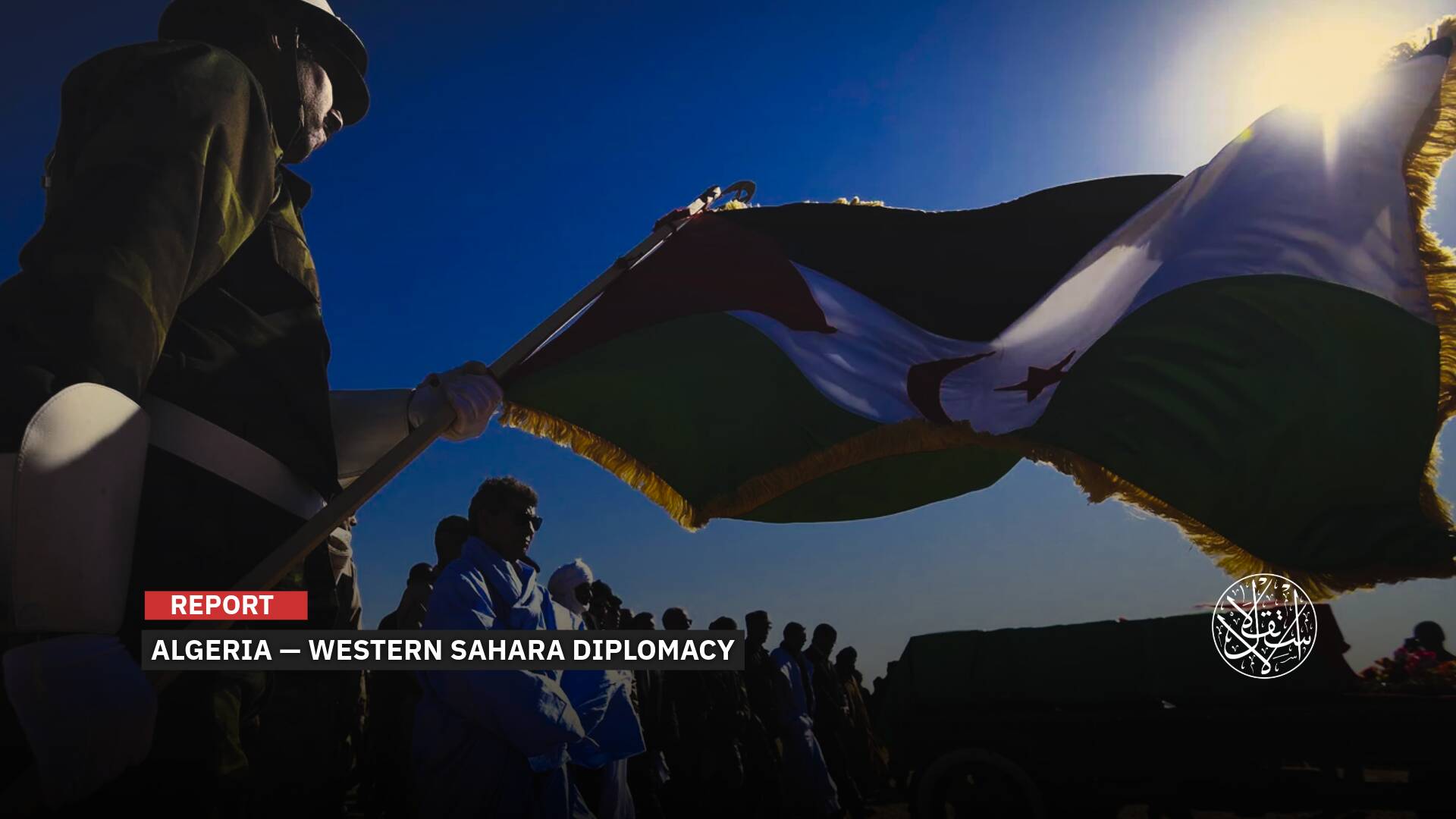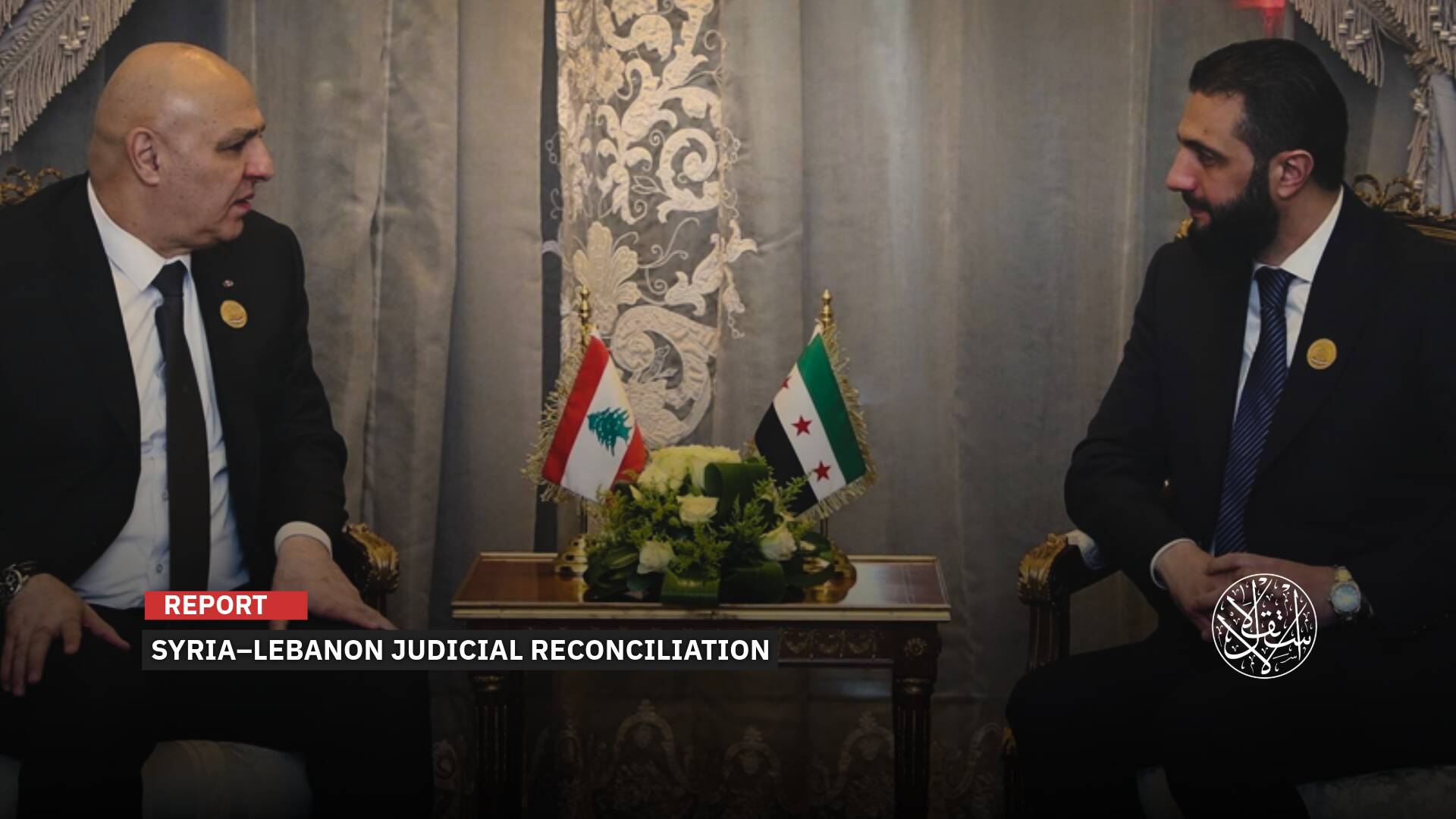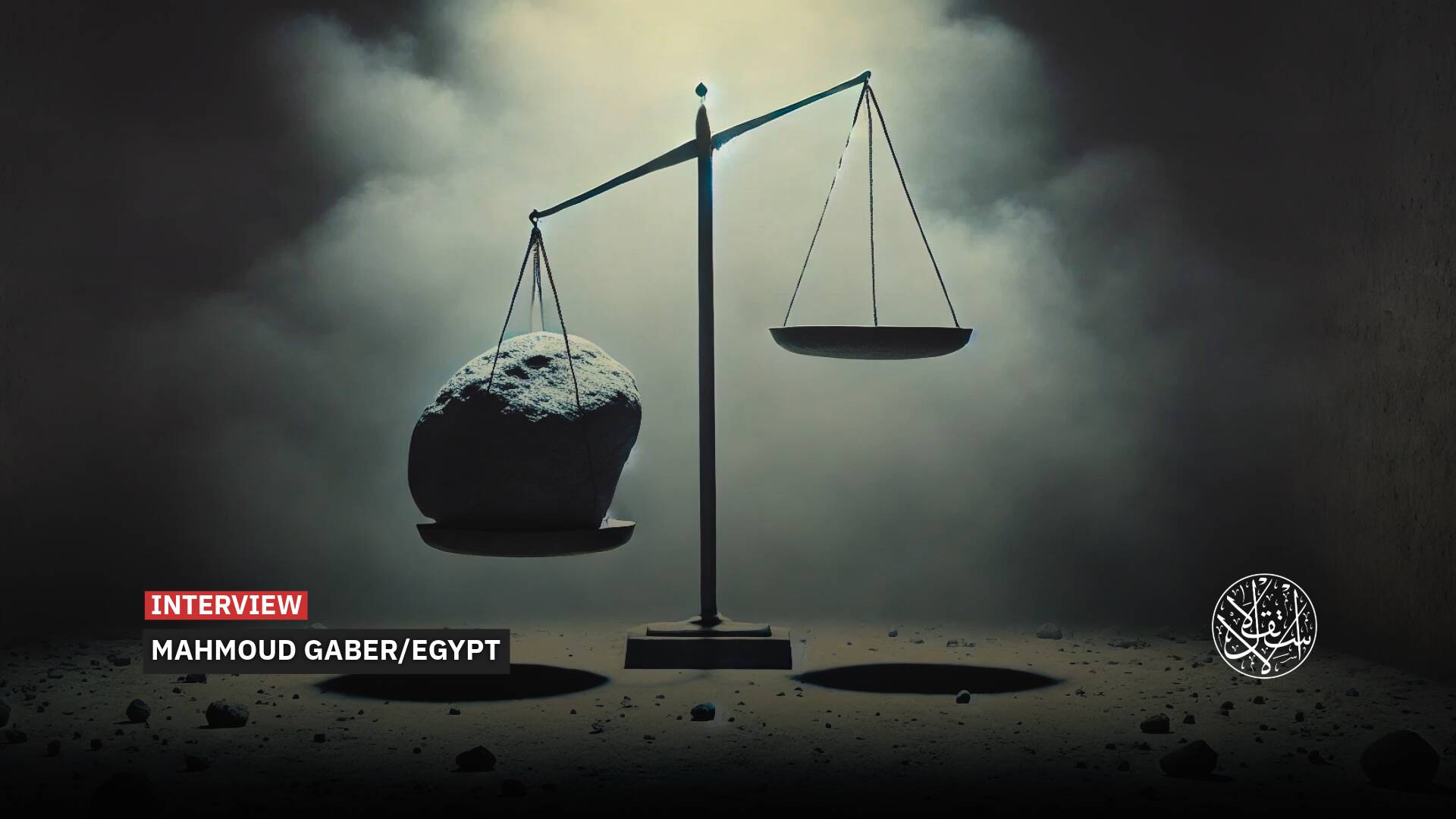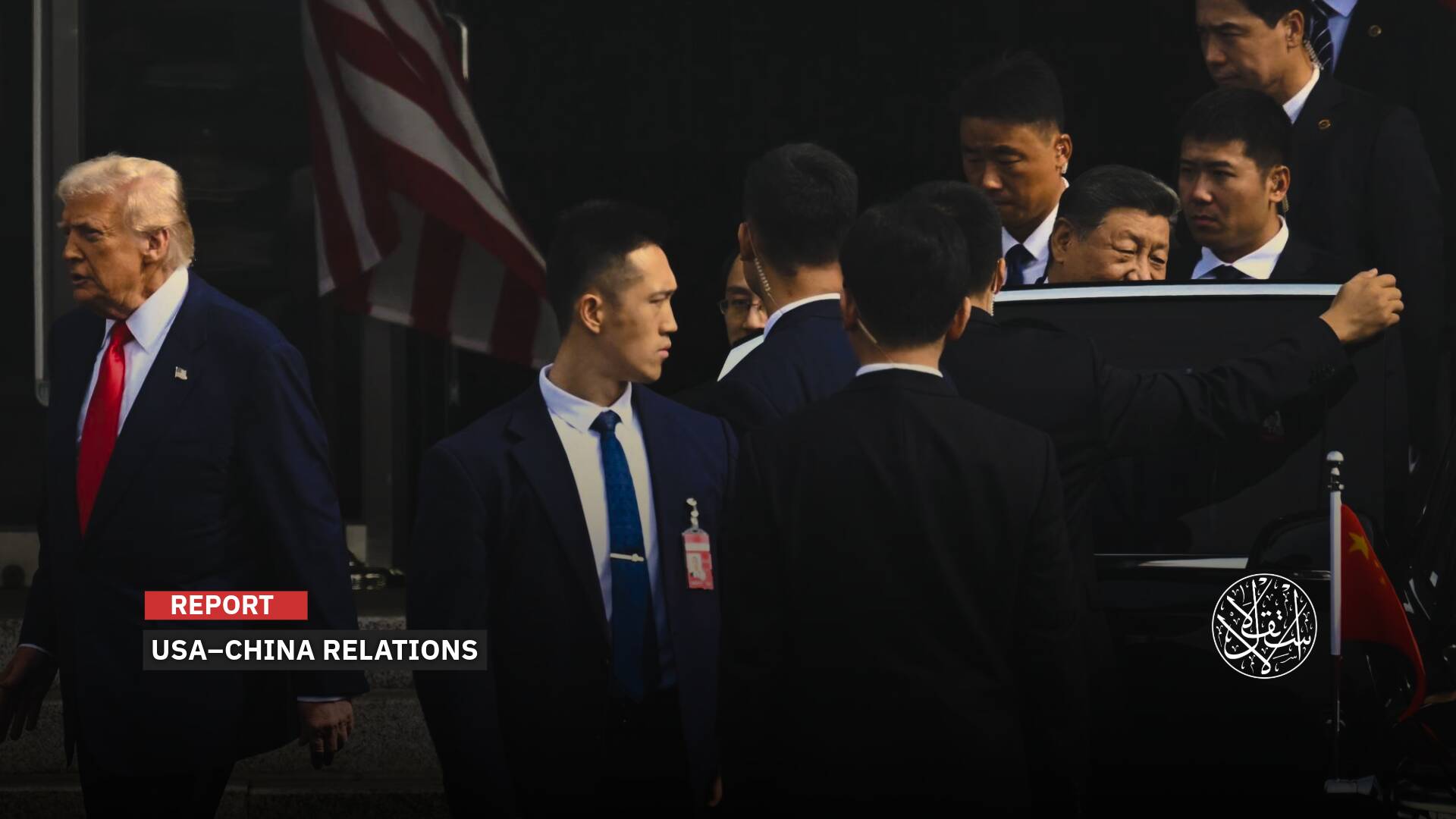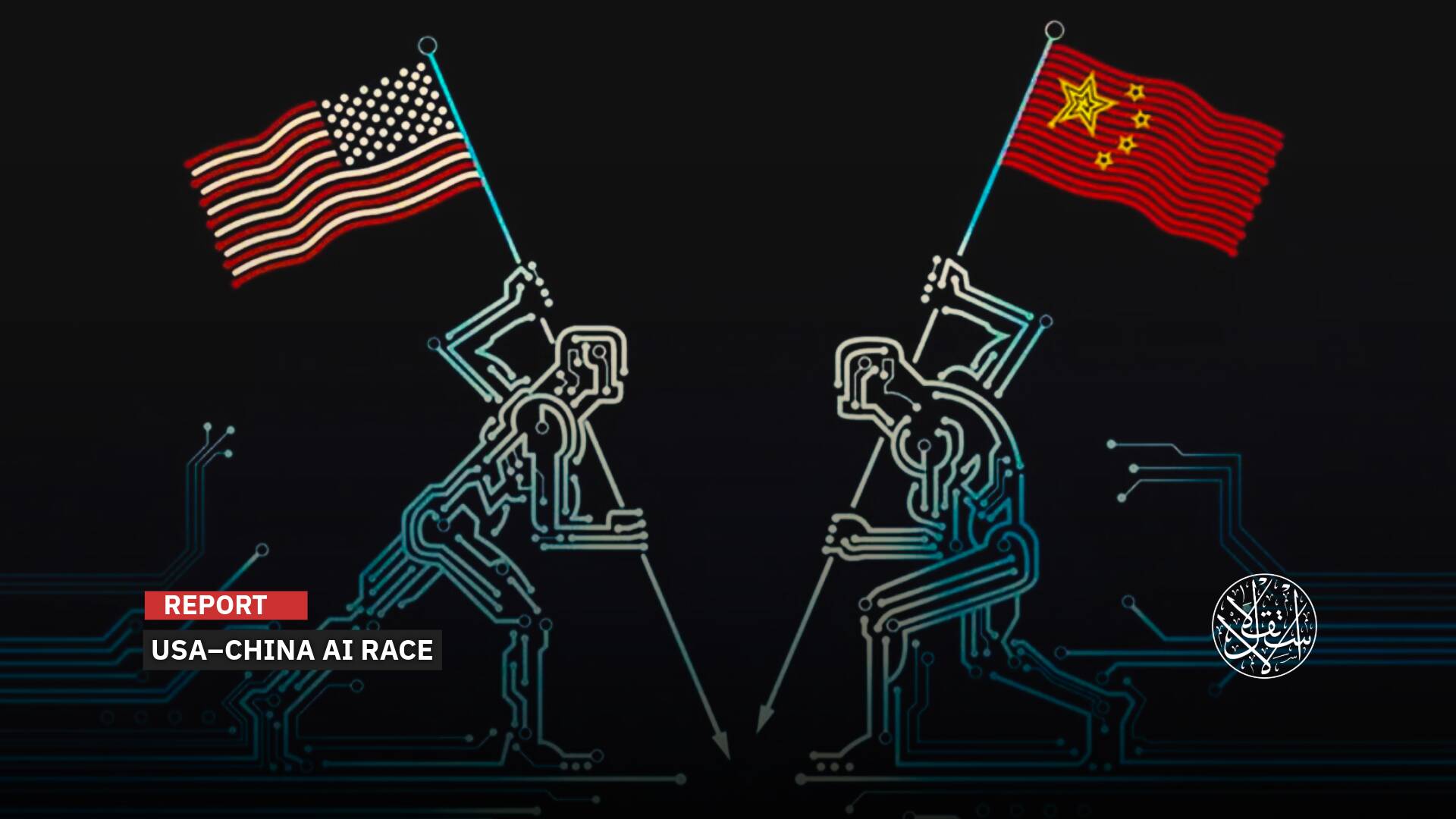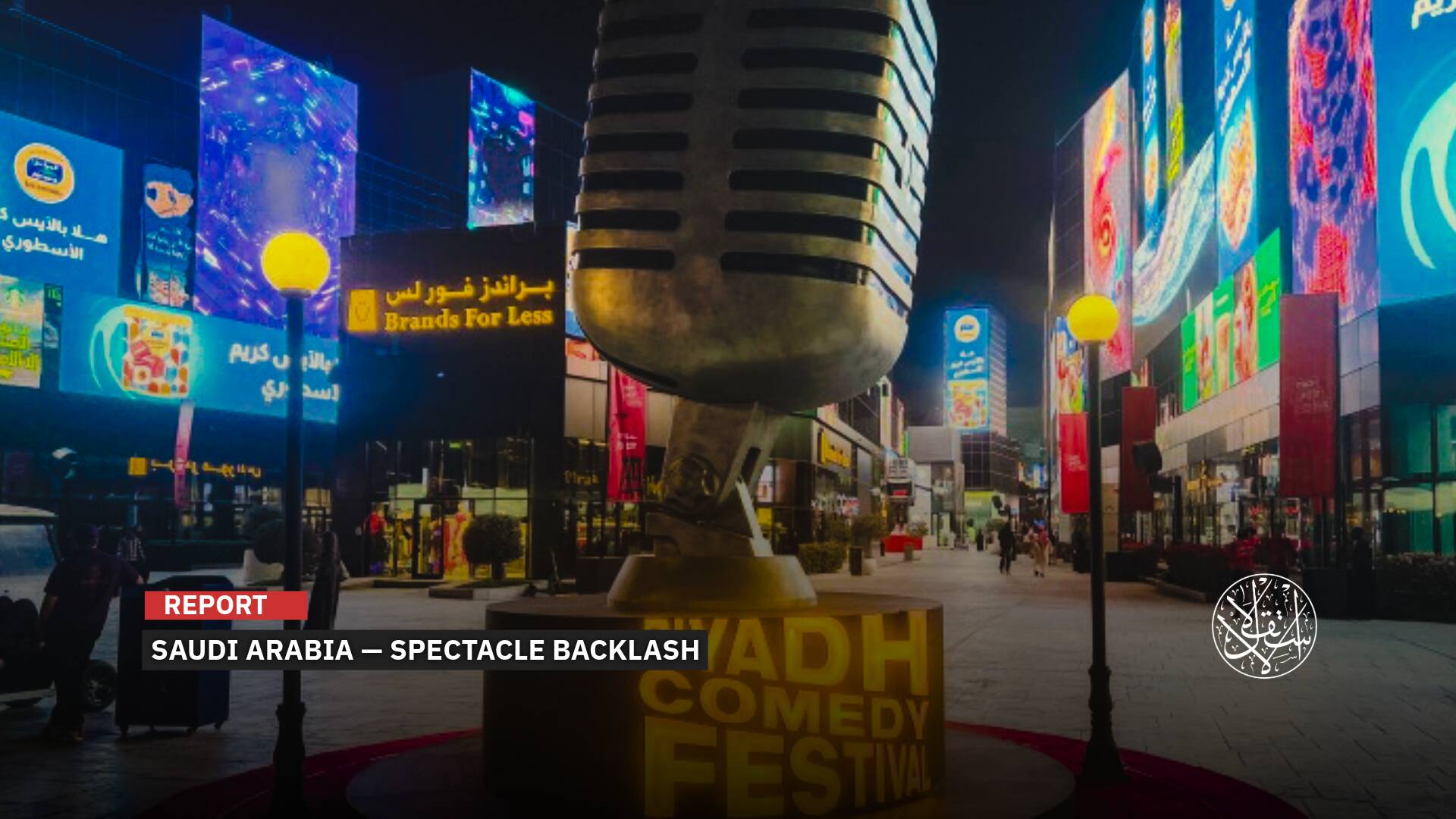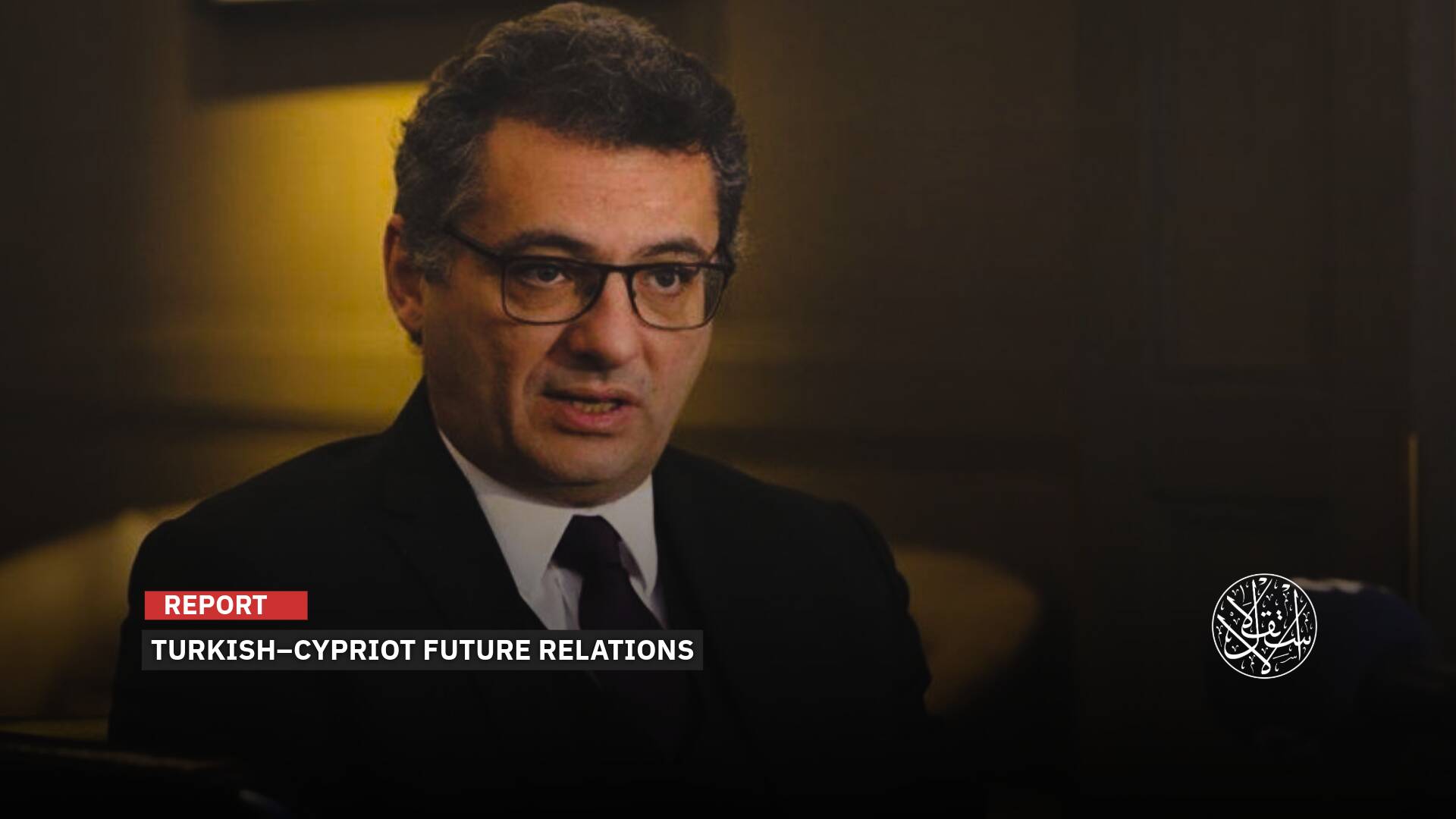Border Closed, Reputation Damaged: What Did el-Sisi Gain by Crushing the ‘Sumud Convoy’?

The Sisi regime decided to block the Sumud convoy and then suppress its participants.
In a rare moment when Cairo could have reclaimed a measure of its dwindling regional clout and moral authority, Abdel Fattah el-Sisi’s regime chose instead to turn its back on a just humanitarian cause—shutting Egypt’s doors to a peaceful solidarity convoy making its way to Rafah to break the siege on Gaza.
Rather than welcoming the “Sumud Convoy,” which set off from Tunisia on June 12, 2025, Egyptian authorities opted to close ranks.
What followed was a predictable playbook: a smear campaign unleashed by state-aligned media, swiftly followed by repressive measures targeting those involved.
Among the repressive tactics employed: the detention of convoy participants at Cairo Airport, the immediate deportation of individuals holding valid visas, and the violent dispersal of those who refused to abandon their attempt to reach the Rafah border—met with batons and plainclothes thugs.
The convoy, composed of between 1,500 and 2,000 people from Tunisia, Algeria, Morocco, and countries further afield—including Turkiye, the UK, and the Netherlands—set off in a show of peaceful resistance, traveling in around 350 vehicles and 20 buses in a bid to break the blockade on Gaza.
A larger group was meant to join the convoy overland via Libya, but they were blocked by militia forces loyal to eastern Libyan Khalifa Haftar—the coup-born militia general backed by Egypt.
Some were detained before eventually being released and deported.
These were not faceless militants or members of an armed faction. The vast majority were politicians, civil society figures, and activists determined to deliver humanitarian aid to Gaza.
Still, the Egyptian state rolled out a familiar narrative on its television screens, accusing the convoy of being a tool to embarrass Egypt—a claim repeatedly denied by participants.
The crackdown has since prompted sharp questions over why the regime opted for a securitized response, deploying repression rather than diplomacy in the face of a peaceful show of solidarity.

Brutal Assault
Widely circulated video footage has documented organized groups of plainclothes thugs assaulting participants in the Sumud Convoy—often in full view of Egyptian security forces, who stood by as activists were beaten for demanding the opening of the Rafah crossing and an end to the siege on Gaza.
The most serious attack took place on the Ismailia road, some 110 kilometres east of Cairo, leaving several injured. Among them was Faruk Dinc, a Turkish MP from the HUDA PAR party.
The party later confirmed that Donmez was in stable condition but warned that other activists—including Turkish nationals—faced serious threats to their safety.
It urged Ankara to launch an immediate diplomatic response and hold Cairo to account.
Tensions spilled over into the Turkish capital, where hundreds of protesters gathered outside the Egyptian embassy in Ankara on the evening of June 14, demanding the release of Turkish citizens detained by Egyptian authorities as they attempted to join the convoy.
In the same vein, Egyptian security services continued their policy of detaining and swiftly deporting foreign nationals.
Hours after the convoy was halted at the gates of the Libyan city of Sirte—under the pretext of awaiting security clearance—Egyptian authorities began detaining more participants arriving by air at Cairo Airport, deporting dozens despite their possession of valid entry visas.

Detentions and Seizures
A statement issued by the convoy’s organizers reported that forty participants were stopped on the desert highway, 45 kilometers east of Cairo.
Their passports were confiscated, and they were barred from continuing their journey—despite repeated assurances that they were acting within the bounds of Egyptian law.
The original plan had been for the buses to cross the Sinai Peninsula to reach the city of Arish, after which the solidarity marchers would proceed on foot for roughly 50 kilometers to the Egyptian side of the Rafah crossing.
Tunisian human rights activist Nawres Zoghbi Douzi shared her harrowing account of the violations she endured while taking part in the “Sumud Convoy” in a post on her Facebook page.
“We were beaten, insulted, and transported like criminals in a locked metal bus—all because we called for the opening of the Rafah crossing and an end to the siege on Gaza,” she wrote.
Nawres went on to describe how, after more than six hours of forced detention inside Cairo’s Security Directorate—under the watch of over 60 Egyptian officers, including members of the special forces—she and a fellow activist refused to hand over their personal phones and demanded their right to contact the Tunisian ambassador.
One senior officer, who identified himself as the head of the district, told them bluntly that “the Tunisian ambassador in Egypt is fully aware of and approves your detention”—a claim Nawres described as a “provocative attempt to justify abuse.”
During their interrogation, both Nawres and her companion were subjected to insults and verbal abuse. They were labeled spies and demeaned as women without men.
They were later transferred in a cramped, metal bus locked with chains to a site referred to simply as the holding area, where they were given a grim choice: remain in indefinite detention, or pay out of pocket for their own deportation.
The activist added, “My mother agreed to pay for the ticket so they would let us out of that place. We were later transferred to detention at Cairo Airport, where the treatment was somewhat calmer. It was there that I met some of my comrades.”
Despite the feelings of despair, Nawres insisted that the activists did not lose their resolve inside the temporary cells.
They chanted “Freedom for Palestine” and scrawled “Sumud Convoy” on the detention walls—a symbolic message refusing to let their voices be silenced.
She concluded her testimony by saying, “The only charge brought against me was this: traveling to Egypt and believing that my moral compass points toward Palestine.”
Heartfelt Message
In a poignant scene widely shared on social media, a British activist was seen weeping openly in front of Egyptian soldiers at a checkpoint near the city of Ismailia.
The activist pleaded with the troops to allow the “Sumud Convoy” passage to Gaza, where a deepening humanitarian catastrophe unfolds amid the ongoing siege and devastating deprivation faced by Palestinians.
In the video, the activist addressed the Egyptian soldiers with a tone steeped in genuine human pain, saying, “I believe the people of the Arab nation have pure hearts, and you are good men.”
He continued, tears streaming down his face, “For the sake of your Islam, love, and humanity, stand with your people,” appealing to their conscience and sense of solidarity in the face of the silent massacre unfolding beyond the border walls.
The activist went beyond political or rights-based arguments, instead seeking to evoke empathy by highlighting the plight of women in Gaza—mothers unable to find even milk to feed their children.
Beside him stood another activist speaking in Arabic, his tone a mix of indignation and disbelief: “How can children in Gaza be killed and starved? And you, who are known for your honor and courage?”
These widely shared scenes laid bare the stark gulf between the official rhetoric of support for the Palestinian cause and the harsh reality on the ground—where a humanitarian convoy was suppressed and urgent appeals from conscience-stricken people of many nationalities were ignored.
Police Raids
Data from Moroccan and Tunisian organisations involved in the “Sumud Convoy” indicate that Egyptian airport authorities sent dozens of activists back on the very flights that brought them, while others were held for hours in detention halls before being deported.
The clampdown was not limited to airports. Hours after a number of foreign volunteers arrived in central Cairo, security forces raided their hotel and arrested them in preparation for deportation.
Meanwhile, other participants faced a similar wave of detentions at checkpoints on the road to Sinai near Ismailia.
This approach led international law professor and former deputy foreign minister Abdullah al-Ashaal to describe Egypt’s stance as confused and unannounced.
Speaking to multiple media outlets, al-Ashaal pointed out that Cairo had not issued an official ban on the convoy’s entry but was instead relying on on-the-ground measures effectively preventing its arrival at Rafah.
He believes that security concerns—particularly the activity of armed groups in Sinai—are intertwined with political calculations tied to Egypt’s relations with “Israel” and the United States.
Al-Ashaal stressed that a clear and viable alternative was available: allowing the convoy to pass under strict Egyptian security supervision, which would have bolstered Cairo’s image as an indispensable humanitarian mediator rather than earning it the reputation of a spoiler.
He warned that the policy of deportation and harassment handed “Israel” ready-made propaganda material, framing solidarity with Gaza as political chaos threatening regional stability—while Egypt squandered another chance to reaffirm its leadership role in the effort to rescue those under siege.

Shameful Delay
Adel Ammar, a Dutch activist of Moroccan descent and participant in the Sumud Convoy, recounted his experience to Al-Estiklal, “We departed from Schiphol Airport in Amsterdam on June 11 amid a heartfelt farewell that lifted our spirits. The chants for Palestine filled the terminal, and we felt we were embarking on a significant mission.”
“After a brief stop in Istanbul, our plane landed in Cairo around 2 a.m. We entered the airport in a group, immediately drawing the attention of security due to our diverse nationalities and appearances.”
“At the passport control desk, officers began asking me detailed questions in Arabic, and I noticed a keen ability to detect my dialect,” Ammar added.
“They confiscated our passports and kept us standing for more than six hours without food or water, before directing us to the passport administration office. We were then asked to sign routine documents and placed in the deportation line.”
“Meanwhile, other officers raided a group of our comrades inside the airport after one activist raised the Palestinian flag. They were surrounded by young soldiers wielding sticks and forced to sit on the floor,” the Dutch activist continued.
“That’s when we realized everyone was going to be deported. The officer was counting the last 23 passports—it was ours.”
With a heavy tone, he said, “They forced us into a locked bus with violence and insults, then straight onto the plane. We didn’t get our passports back until we were seated and ready for takeoff.”
“This treatment—from humiliating waits to physical violence and the denial of our basic rights—was nothing more than a message that peaceful solidarity with Gaza is met with repression in Egypt.”
“But despite all this, we will not relent in demanding the opening of the Rafah crossing and the delivery of aid to the Palestinians,” the Dutch activist concluded.


